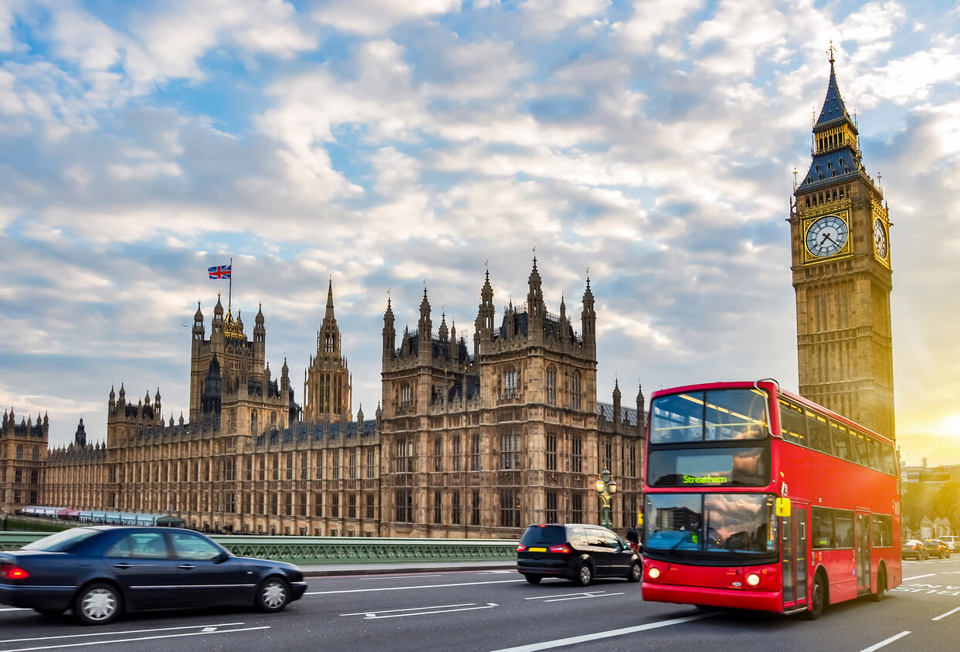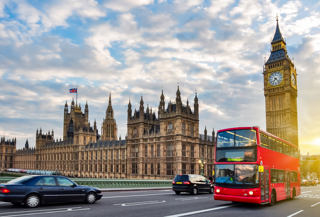The IAM has compiled a run-down of transport and road safety proposals from the manifestos of the main political parties.
The manifesto links are provided next to each party name, with page number references for each policy.
Labour (view manifesto)
- Support the construction of HS2, but keep costs down, and take action to improve and expand rail links across the North to boost its regional economies. (p19)
- Support long-term investment in strategic roads, address the neglect of local roads, and promote cycling. (p19)
- Following the Davies Review, Labour say they will make a swift decision on expanding airport capacity in London and the South East. (p19)
- Review the rail franchising process as a priority and put in place a new system. This will include a new National Rail body to oversee and plan for the railways and give rail users a greater say in how trains operate. (p26)
- Legislating so that a public sector operator is allowed to take on lines and challenge the private train operating companies on a level playing field. (p26)
- Freeze rail fares next year. A strict fare rise cap will be introduced on every route for any future fare rises, and a new legal right for passengers will be created to access the cheapest ticket for their journey. (p26)
- City and county regions will have more power over the way buses operate, by deciding routes, fares, and bring together trains, buses and trams into a single network with smart ticketing. (p26)
Conservative (view manifesto)
- Invest over £6bn in the northern road network, and add 1,300 extra lane miles to the road network, with funding for around 18 million potholes to be fixed by 2021. (p15)
- Invest £38bn on the railway network, up to 2019, and promise to deliver ‘Norwich in 90’ and ‘Ipswich in 60’. (p13/14)
- Plans for Crossrail 2, and continue with HS2 and HS3. (p14)
- Freeze rail fares in real terms for the whole of the next Parliament, whilst regulated fares will only be able to rise by RPI. (p14)
- Require train companies to improve compensation arrangements for passengers when trains are more than a few minutes late. (p15)
- For ‘almost’ every car and van to be zero emission by 2050, with a £500m investment over the next five years to help achieve this.
- Invest over £200m to make cycling safer. (p15)
- Work with the Automotive Council in support of Britain’s resurgent car industry. (p21)
- Invest £13bn in transport for the North. (p11)
- Commit to electrifying the main rail routes, building the Northern Hub, and providing new trains for the North. (p11)
- Invest £5.2bn upgrading the M1 and M6 and electrifying the Midland Main Line to Sheffield. (p13)
- Upgrade the A1, M62, M1 and A555 link road. (p11)
- Improve connections to the South West with major investment in the M5, A358, A30 and A303, and the electrification of the Great Western Main Line – bringing new fast trains on the route. (p11)
- Invest a record £5.2bn in better transport, upgrading the M1 and M6, and electrifying the Midland Main Line from St Pancras to Sheffield. (p13)
- Improve rail connections to East Anglia, delivering ‘Norwich in 90 minutes’ and ‘Ipswich in 60 minutes’ and upgrade key roads like the A11 and A47. (p13)
Liberal Democrats (view manifesto)
- Enable more people to travel with rail upgrades across the country, and by supporting HS2. (p25)
- Ensure rail fares rise no faster than inflation over the Parliament as a whole. (p50)
- Set out 10-year rolling capital investment plans. (p30)
- Developing a comprehensive plan to electrify the majority of the UK rail network, reopen smaller stations, restore twin-track lines to major routes and proceed with HS2, as the first stage of a high-speed rail network to Scotland. (p30)
- Deliver the Transport for the North strategy to promote growth, innovation and prosperity across northern England. (p30)
- Developing resilient links to and within the South West peninsula to help develop and diversify the regional economy. (p30)
- Complete East-West rail, connecting up Oxford and Cambridge and catalysing major new housing development. (p30)
- Ensuring new rail franchises include a stronger focus on customers, integrate with other modes of transport and will also deliver a programme of investment in new stations, lines and station facilities. They will continue the Access for All programme, improving disabled access to public transport. (p31)
- Encourage Local Authorities to consider trams alongside other options, and support a new generation of light rail and ultra-light rail schemes where appropriate. (p31)
- Ensure London’s transport infrastructure is improved to withstand the pressure of population and economic growth. (p30)
- Work to encourage further private sector investment in rail freight terminals and rail-connected distribution parks. (p30)
- Set a clear objective to shift more freight from road to rail and change planning law to ensure new developments provide good freight access to retail, manufacturing and warehouse facilities. (p30)
- Consider the conclusions of the Davies Review into runway capacity and develop a strategic airports policy for the whole of the UK in the light of those recommendations and advice from the Committee on Climate Change. (p31)
- Opposed to any expansion of Heathrow, Stansted or Gatwick and any new airport in the Thames Estuary, because of local issues of air and noise pollution. They pledge to ensure no net increase in runways across the UK. (p31)
- Introduce a Green Transport Act, including a National Plan to improve dramatically Britain’s air quality by 2020. (p87)
- Consult on a National Air Quality Plan which will involve plans on low emissions zones, encouraging walking and cycling, reviewing MOT processes, and supporting EU air quality targets. (p87)
- Promote innovation and greener transport choices by supporting EU vehicle emission standards, and reform Vehicle Excise Duty to drive continuous reductions in greenhouse gas and other pollutants. They will introduce separate banding for new diesel cars. (p87)
- Encourage the market for electric vehicles, and set a target of 2040 for the date after which only Ultra-Low Emission vehicles will be permitted on UK roads for non-freight purposes. They will also accelerate the commercial introduction of zero emission fuel cell electric vehicles, and facilitate the UK-wide introduction of hydrogen fuelling infrastructure. (p87)
- Commit to ongoing reviews of the regulatory framework to permit use of driverless and personal electric vehicles. (p87)
- Support options for an intercity cycleway along the HS2 route, within the overall budget for the project. (p87)
- Implement the recommendations of the Get Britain Cycling report, including steps to deliver a £10 a head annual public expenditure on cycling within existing budgets. This will allow greater investment in cycling including bike lanes, high-volume secure bike parking, and road safety measures to keep cyclists safe. (p.88)
- Carry out a review of bus funding and bus policies, introduce a five-year investment plan, support local plans for regulating the bus network in their area, give new powers to Local Authorities and communities to improve transport in their areas, support the expansion of smart ticketing systems and continue funding for local economic and sustainable transport infrastructure through the Local Growth Fund. (p88)
- Commit to help bus companies trade in older, more polluting buses and coaches for newer, low emissions ones, helping develop the market for low-carbon buses. (p88)
UKIP (view manifesto)
- Saving £4bn a year in capital expenditure by ending HS2. (p8)
- Consider the Davies Commission recommendations into airport capacity and then take a position on the basis of long-term interests of the country. (p37)
- Commit to re-opening Manston Airport. (p37)
- UKIP will only allow installation of speed cameras when they can be used as a deterrent at accident black spots, near schools and in residential areas where there are specific potential dangers. (p37)
- Remove road tolls where possible and let existing contracts on running road tolls expire. (p37)
- Commit to scrapping mandatory fitments of eCall and allowing owners who already have eCall installed to disable it on their vehicles. (p37)
- Scrap the Driver Certificate of Professional Competence (DCPC). (p37)
- After leaving the EU, the HGV Road User Levy would no longer apply. UKIP will adjust the Vehicle Excise Duty on UK vehicles to make this aspect of the change revenue neutral for both UK hauliers and the Government. The party pledge to double the levy tariff to £2000 per annum and only apply to foreign registered HGVs. (p37)
- Exempt vehicles over 25 years old from Vehicle Excise Duty. (p25)
Green Party (view manifesto)
- Support 20 mph zones, cycle schemes and public transport to make streets safe and useful for young people (p.28)
- Cancel the major road investment programme. This would save £15bn, with money used to fix potholes and further investment in walking and cycling. (p.65)
- Spend at least £30 per head on cyclists and pedestrians ensuring they receive a “fair share of road space.” (p.65)
- Support free local transport for pensioners, and extend this to young people and students. This would cost around £4bn a year. The party will also extend networks of public transport to include rural areas. (p65)
- Bring down speed limits, to 20mph in residential areas and 40mph on rural roads. (p.66/68)
- Reduce the drink drive limit to as close to zero as is practical. (p66)
- Require “best-practice” technology to be fitted to lorries to ensure that drivers are fully aware of the presence of pedestrians and cyclists, whilst reducing lorry activity and road freight by reducing the number of empty loaded services, and improving rail freight services. (p66)
- Support an Active Travel Bill for England to reduce traffic from towns and cities. They will help schools and workplaces to support this, and ensure that all planning decisions take active travel into consideration. (p66)
- Introduce road-pricing schemes and road user tolls for heavy lorries (p66)
- Reduce parking spaces in new developments, eliminate pavement parking, whilst ensuring that parking charges in public car parks are proportionate to the cost of providing the facility, and provide cycle parking throughout towns and cities. (p66)


















Login to comment
Comments
No comments have been made yet.